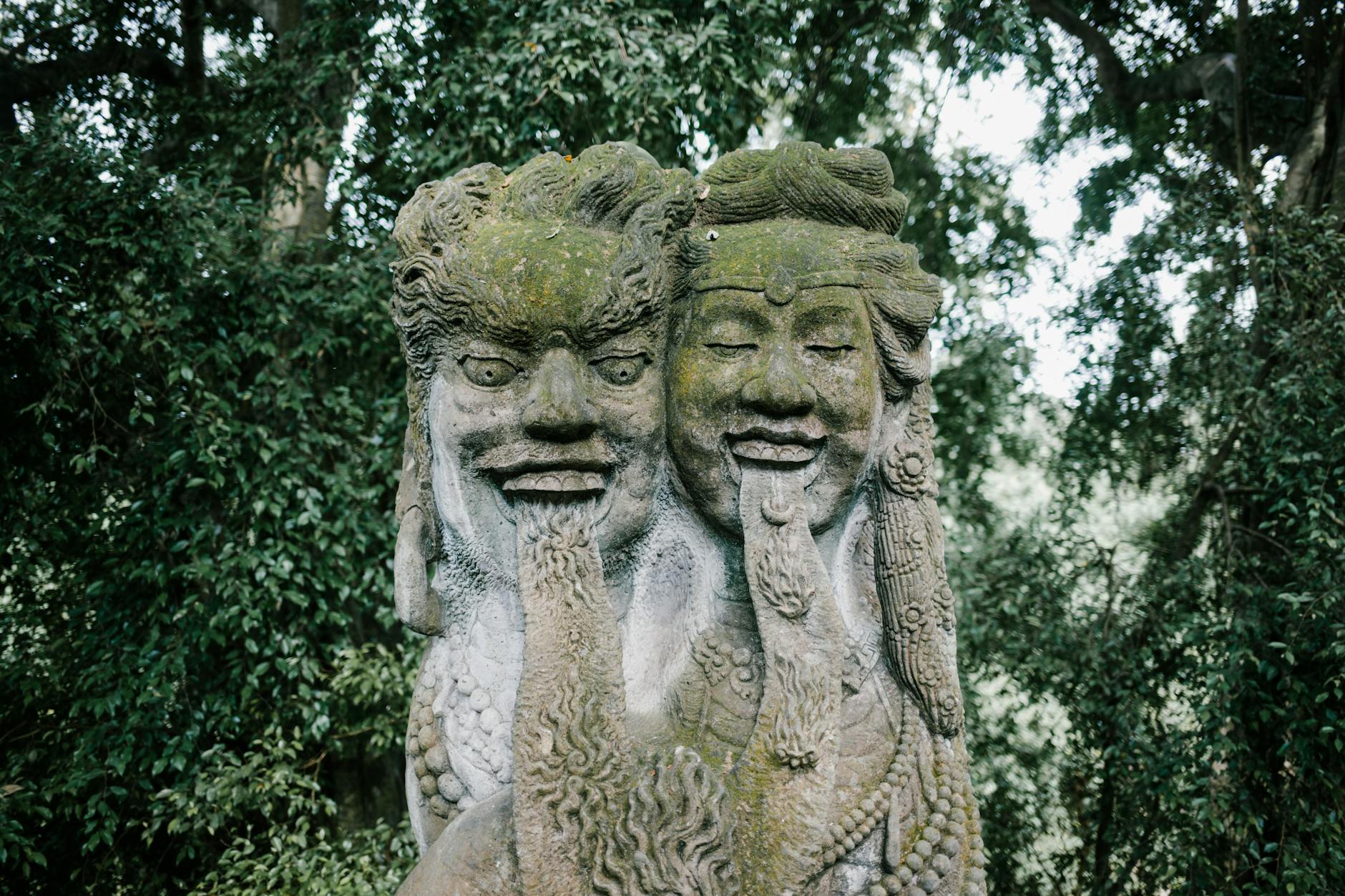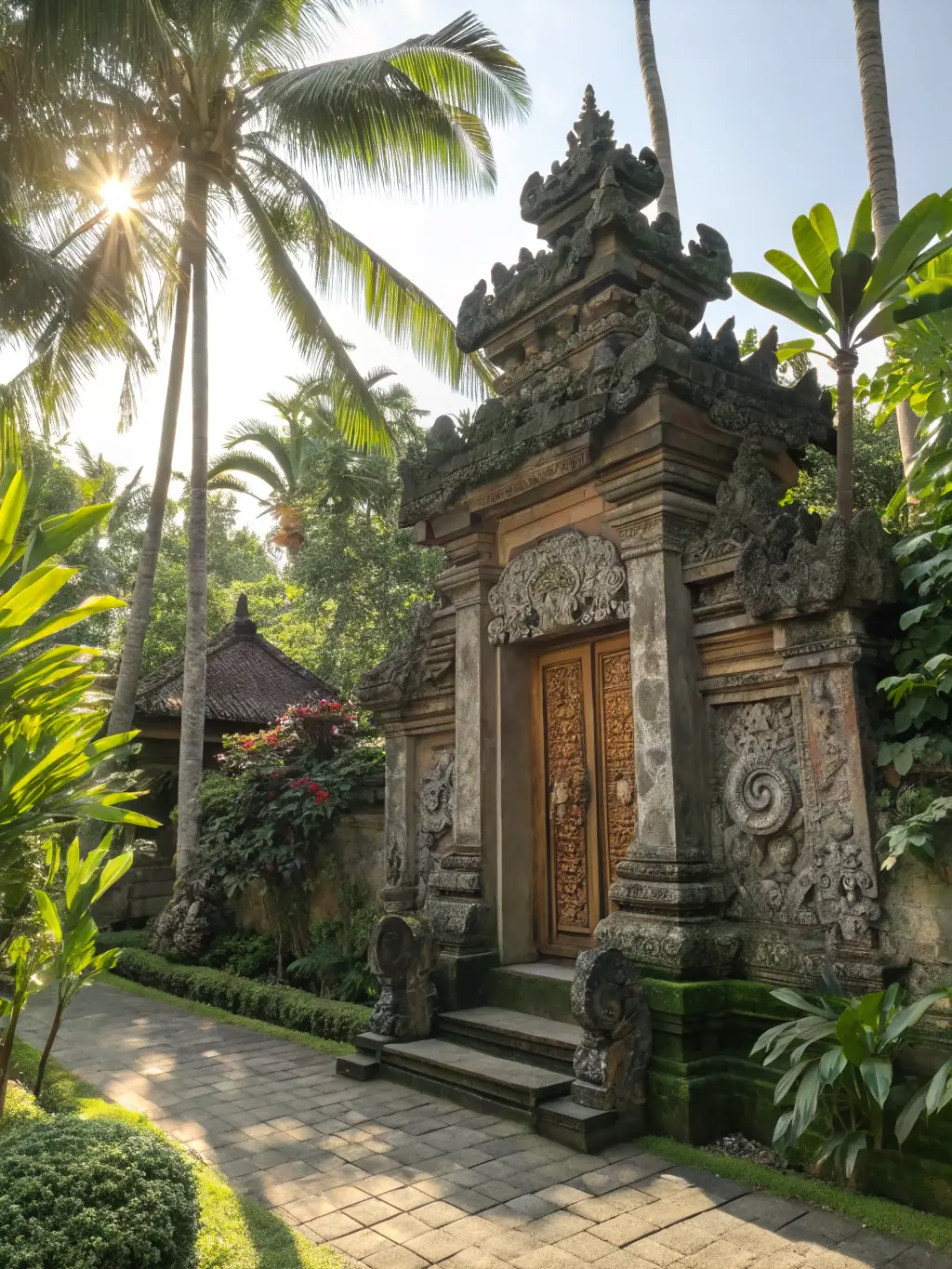Bali for Seniors: A Cultural Journey (2025 Guide)
Bali offers seniors a unique travel experience, blending a gentle pace with rich cultural encounters. It’s a place where you can truly connect with local traditions and arts, moving beyond typical tourist stops. The island’s spiritual heart provides a peaceful backdrop for relaxation and discovery.
You’ll find Bali to be inclusive, safe, and easily navigable, with welcoming locals eager to share their way of life. This guide will help you prepare for an enriching journey, focusing on authentic experiences that highlight the depth of Balinese culture.
Embracing Balinese Spirituality and Rituals
Bali is often called the “Island of Gods,” a title it truly earns through its deep spiritual roots. Balinese Hinduism, known as Agama Tirta or “Religion of Holy Water,” shapes daily life here. You’ll see this spirituality woven into everything, from the intricate offerings placed outside homes to the grand temple ceremonies. It provides a peaceful and profound backdrop for your visit, offering a unique chance to observe and appreciate a way of life deeply connected to the divine.
Temple Visits and Ceremonies: Sacred Spaces
Visiting temples forms a core part of the Balinese experience. These sacred spaces are not just historical sites but active centers of worship. For seniors, most major temples are easily accessible. You should always wear respectful attire when visiting. This usually means a sarong (a traditional cloth) and a sash, which you can often rent at the temple entrance.
Some popular temples include:
- Tirta Empul: Located in Tampaksiring, this temple is famous for its holy spring water. Many people, including locals and visitors, partake in a purification ritual here. While the full ritual involves stepping into the water, you can also quietly observe or walk around the beautiful grounds.
- Ulun Danu Beratan Temple: Situated on Lake Bratan in the mountains near Bedugul, this temple offers stunning views. Its iconic multi-tiered shrines appear to float on the lake, making it a beautiful and serene spot. The air here is cooler, providing a pleasant escape from the coastal heat.
- Goa Gajah (Elephant Cave): Near Ubud, this ancient archaeological site features a cave entrance carved to resemble a demonic mouth. Inside, you will find both Hindu and Buddhist relics. The grounds are compact and easy to explore.
You will encounter daily offerings, called Canang Sari. These small woven palm-leaf baskets filled with flowers, rice, and incense are placed everywhere. They are a beautiful and constant reminder of devotion. During your visit, you might quietly observe a ceremony. Sometimes, a local priest might invite you to receive a blessing, which offers a gentle spiritual moment.
Understanding Local Beliefs: Daily Offerings and Blessings
The Canang Sari is more than just an offering; it symbolizes gratitude and balance. Each morning, Balinese people prepare and place these offerings to thank the gods and appease negative forces. The careful arrangement of colors, scents, and elements within each basket carries deep meaning.
At the heart of Balinese Hinduism is the philosophy of Tri Hita Karana. This concept emphasizes harmony among three essential relationships:
- Harmony with God (Parahyangan): Through prayers, offerings, and rituals.
- Harmony with Nature (Pawongan): Respecting the environment and all living things.
- Harmony with People (Palemahan): Fostering strong community ties and kind relationships.
This commitment to balance permeates every aspect of Balinese life. You might also hear about local priests (Pemangku) and traditional healers (Balian). Pemangku preside over temple ceremonies. Balian often offer spiritual guidance or healing through traditional methods. Some seniors find gentle spiritual consultations with a Balian to be a profound experience, offering insights into their well-being in a quiet, respectful setting. They provide a unique window into ancient practices.
Engaging with Traditional Balinese Arts and Crafts
Beyond its spiritual depth, Bali is an island pulsating
Culinary Delights and Local Living
Stepping into the heart of Bali means indulging in its rich flavors and living alongside its people. Food here is more than sustenance; it is a celebration of community, tradition, and fresh ingredients. You will discover how eating local and choosing certain accommodations can deepen your understanding of Balinese culture.
Taste of Bali: Authentic Flavors for Palates
Bali’s food scene is a vibrant tapestry of tastes ready for you to explore. Many dishes are prepared with a unique blend of local spices and fresh ingredients. These flavors create meals that are both comforting and exciting.
You will find many iconic dishes:
- Nasi Goreng: This classic Indonesian fried rice often includes chicken or shrimp, vegetables, and a fried egg. It is a hearty and flavorful staple.
- Mie Goreng: Similar to Nasi Goreng, this dish features fried noodles instead of rice. It offers a different texture but the same rich flavors.
- Babi Guling: For those with an adventurous palate, roast suckling pig is a Balinese specialty. It features crispy skin and tender meat, seasoned with a mix of herbs. This dish is usually found at specific eateries.
- Satay: Skewered and grilled meats, most often chicken or pork, are served with a rich peanut sauce. These small bites are perfect for sharing or as a light meal.
Fresh seafood is also abundant, especially in coastal areas. Think grilled fish, prawns, and squid caught daily.
For an authentic experience, seek out warungs, which are local eateries. These small, often family-run spots offer delicious food at affordable prices. Many warungs cater to various dietary needs. Do not hesitate to ask about vegetarian options or mild spice levels. Many places are happy to adjust dishes for you.
Beyond the Plate: Coffee and Herbal Drinks
Bali’s culinary journey extends beyond meals to its beverage culture. Coffee plays a significant role here, with plantations offering unique blends.
You will encounter Kopi Luwak, a distinct coffee made from beans that pass through a civet’s digestive system. While unique, it is wise to consider the ethical implications surrounding its production. Many places prioritize fair treatment for the civets.
Beyond coffee, traditional herbal drinks offer a glimpse into Balinese wellness practices. Jamu is a popular traditional medicine made from natural ingredients. You can find many varieties, each with different health benefits. Common ingredients include turmeric, ginger, and tamarind. These drinks are deeply embedded in the culture, used for generations to maintain health and vitality. Drinking Jamu offers a taste of ancient wisdom.
Homestays and Guesthouses: Connecting with Families
To truly immerse yourself in Balinese daily life, consider staying in a homestay or guesthouse. Choosing these smaller accommodations over large resorts creates opportunities for deeper connections. Many seniors find this option rewarding.
Homestays often mean you are living with a Balinese family. Imagine joining them for a simple breakfast or observing their daily routines. This provides a window into their culture that larger hotels cannot offer. You often experience warmth and genuine hospitality in these settings. The families who run these places are often eager to share their way of life. They might offer cooking lessons or guide you to local spots. This personal interaction turns a simple trip into a memorable cultural exchange. You gain insights into local customs and often create lasting friendships.
Practical Tips for a Smooth Senior Travel Experience
Traveling to a new country is exciting, but it also comes with practical considerations. For senior travelers, a little extra planning goes a long way in ensuring a comfortable and stress-free trip. Here are some essential tips to help you enjoy your cultural immersion in Bali.
Health and Safety Considerations
Your well-being is important when you travel. Bali is generally safe, but taking some basic health and safety steps will make your visit better.
Here are a few things to keep in mind:
- Stay Hydrated: Bali’s tropical climate means it can be hot and humid. Drink plenty of bottled water throughout the day. Dehydration can happen quickly, so carry a water bottle with you.
- Sun Protection: The sun can be intense. Apply high-SPF sunscreen regularly, wear a wide-brimmed hat, and use sunglasses. Look for shaded areas, especially during peak sun hours (10 AM to 4 PM).
- Insect Repellent: Mosquitoes are common, especially in rural areas or around water. Use an insect repellent with DEET or picaridin to prevent bites. Some mosquitoes can carry diseases.
- Consult Your Doctor: Before your trip, talk to your doctor. Discuss any necessary vaccinations and ask about prescriptions. Make sure you have enough of your regular medications to last the entire trip, plus a little extra.
- Travel Insurance: This is a must. Ensure your travel insurance covers medical emergencies, hospital stays, and emergency evacuation. Sometimes unexpected things happen, and good insurance provides peace of mind.
Bali has reputable medical facilities, particularly in Denpasar, Ubud, and the southern tourist areas. International-standard hospitals like BIMC Hospital and Siloam Hospital are available if you need them. It’s smart to know where these are located near your accommodation.
Navigating Bali: Transportation and Accessibility
Getting around Bali can be an adventure. Choosing the right transportation can make your travels much smoother.
Consider these options:
- Pre-booked Drivers: This is often the most relaxing way to travel. You can arrange a driver for airport transfers, day trips, or even for a half-day. Many hotels can help you book reliable drivers. They offer comfort and local insights.
- Ride-Hailing Apps: Apps like Gojek and Grab are popular and convenient. You can order cars or motorbikes directly from your phone. They offer set prices, which helps avoid haggling. These apps are great for shorter distances within towns.
- Avoid Crowded Public Transport: For comfort, avoid crowded public buses, which can be less reliable and more challenging to navigate. Stick to private options.
Accessibility varies across Bali. Many temples and cultural sites have stairs or uneven paths. Comfortable, sturdy footwear is essential for walking and exploring. If you have mobility concerns, research specific sites beforehand or ask your driver about accessibility. Many drivers are happy to assist.
Respecting Local Customs and Etiquette
Balinese culture is rich and deeply rooted in tradition. Showing respect for local customs will not only make your trip more enjoyable but also help you connect with the people.
Remember these key points:
- Appropriate Dress Codes: When visiting temples or attending ceremonies, dress modestly. This means covering your shoulders and knees. You usually need to wear a sarong and sash. Most temples provide these for rent at the entrance.
- Polite Greetings: A simple “Om Swastiastu” (a common Balinese greeting, meaning “May peace be with you”) is always appreciated. A gentle nod or a slight bow also shows respect.
- Removing Shoes: Always remove your shoes when entering someone’s home or some places of worship. Look for a pile of shoes outside as a clue.
- Right Hand Use: Use your right hand when giving or receiving something, especially money or food. The left hand is considered unclean in Balinese culture.
- Showing Respect for Traditions: Balinese people are generally warm and forgiving of tourist mistakes. However, making an effort to follow their customs shows you value their culture. Observe how locals behave and try to follow suit.
- Asking Before Photos: If you want to take a photo of a person, especially during a ceremony, always ask for permission first. A simple gesture or “boleh saya ambil foto?” (May I take a photo?) is polite. Respect their wishes if they decline.
 Photo by Julia Volk
Photo by Julia Volk
Conclusion
Bali stands ready to offer you a truly enriching journey. It is a place where a relaxed pace meets deep cultural engagement. Seniors can find profound beauty in the island’s traditions, from its spiritual rituals to its warm, welcoming communities. Embrace the chance to connect with Balinese daily life, savor authentic flavors, and appreciate the island’s artistic heart. Planning your trip means preparing for comfort and discovery. Allow Bali to share its unique charm, inviting you to experience a cultural immersion unlike any other.






